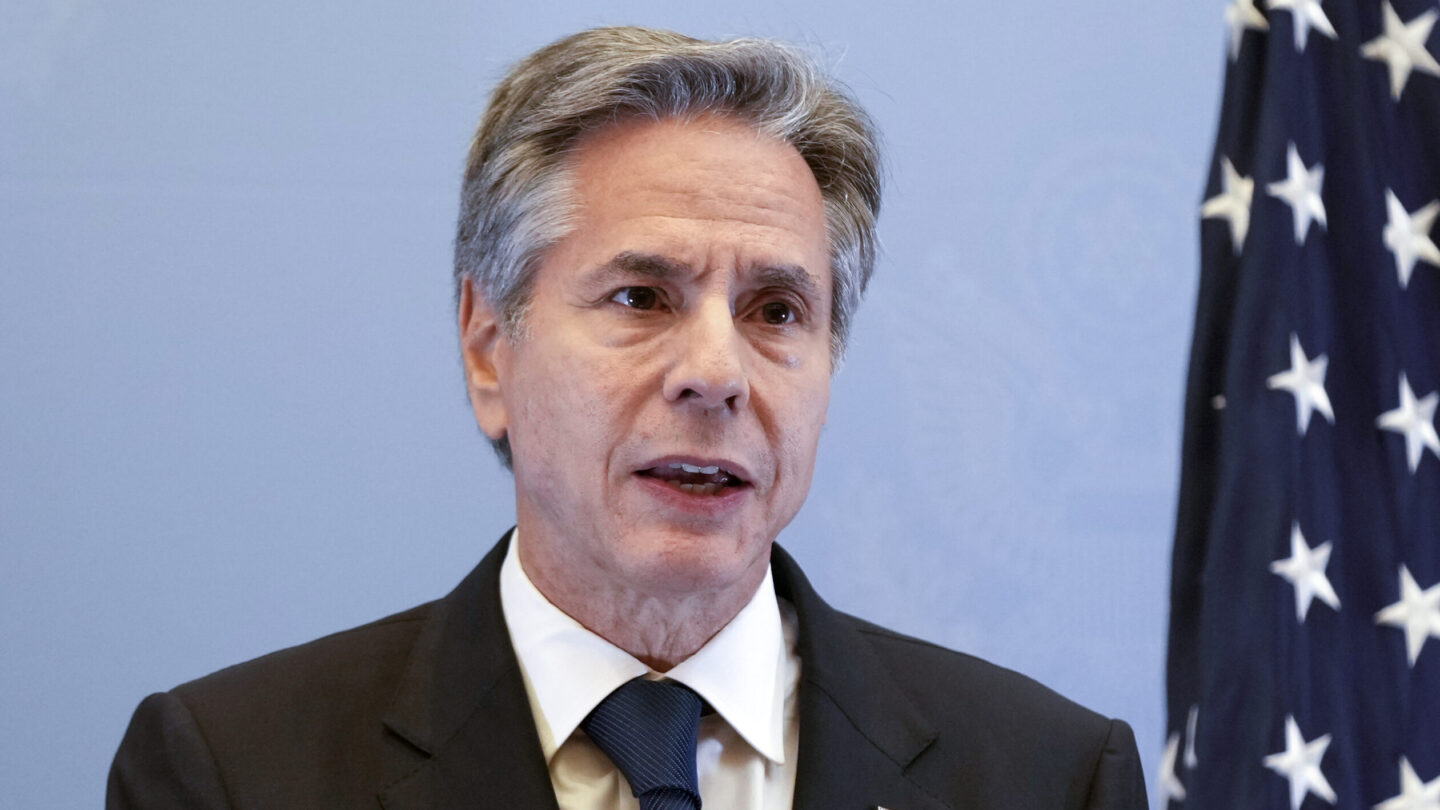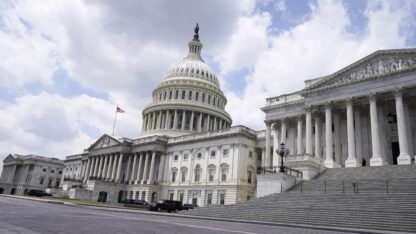The Biden administration said Tuesday it will recognize and support a new Syrian government that renounces terrorism, destroys chemical weapons stocks and protects the rights of minorities and women.
Secretary of State Antony Blinken said in a statement that the U.S. would work with groups in Syria and regional partners to ensure that the transition from President Bashar Assad’s deposed government runs smoothly. He was not specific about which groups the U.S. would work with, but the State Department has not ruled out talks with the main Syrian rebel group despite its designation as a terrorist organization.
The qualified pledge of support for a post-Assad Syria comes as the Biden administration continues to look to target Islamic State fighters to prevent the group from reemerging as an international threat and maintains support for Israel as its forces conduct their own operations inside Syria.
The sudden ouster of Assad has left President Joe Biden’s outgoing administration having to delicately maneuver through yet another volatile moment in the Middle East and as President-elect Donald Trump demands that the United States tread carefully in the region and stay out of the fray.
“The transition process and new government must also uphold clear commitments to fully respect the rights of minorities, facilitate the flow of humanitarian assistance to all in need, prevent Syria from being used as a base for terrorism or posing a threat to its neighbors, and ensure that any chemical or biological weapons stockpiles are secured and safely destroyed,” Blinken said.
He added that Syrians should decide their future and that other countries should “support an inclusive and transparent process” and not interfere.
“The United States will recognize and fully support a future Syria government that results from this process,” Blinken said. “We stand prepared to lend all appropriate support to all of Syria’s diverse communities and constituencies.”
The Assad government collapsed over the weekend during lightning strikes led by the rebel group Hayat Tahrir al-Sham, known as HTS, which has been designated a “foreign terrorist organization” by the U.S. since 2012.
The State Department says it will review that designation if the group takes steps to reverse the reasons for it but says the listing itself does not prohibit discussions between its members and U.S. officials.
Florida Rep. Mike Waltz, whom Trump has picked to serve as his national security adviser, said the “jury is out” on HTS and its leader, Abu Mohammed al-Golani.
“On the one hand, though, he’s not, at least so far, beheading former Assad regime officials or hanging them from bridges. They do seem to be sitting and talking, which is a very, which is a good initial first sign,” Waltz said in a Fox News interview. “But President Trump and our team are watching very closely., and we’re also watching very closely the tens of thousands of ISIS fighters and their, and their families that are still held in camps from when President Trump in his first term cleaned up and destroyed the ISIS caliphate.”
The White House also signaled its approval of Israel’s strikes against Syrian military and alleged chemical weapons targets as well as the seizure of a buffer zone in the Golan Heights after the fall of the Assad government.
“These are exigent operations to eliminate what they believe are imminent threats to their national security,” White House national security spokesman John Kirby said Tuesday, saying the U.S. would leave it up to the Israelis to discuss their operations.
“They have, as always, the right to defend themselves,” Kirby said.
He declined to say whether any U.S. intelligence cooperation with the Israelis may have gone into the strikes.
Kirby said the White House was reasserting its support of the 1974 Golan Heights disengagement agreement, but he didn’t criticize the Israeli seizure of the demilitarized zone. The agreement on disengagement between Israel and Syria, which concluded the Yom Kippur War, established the buffer zone.
Israeli Prime Minister Benjamin Netanyahu says Israel’s military is temporarily seizing control of the buffer zone, saying the disengagement agreement has collapsed with the rebel takeover of Syria. Turkey, Saudi Arabia, Egypt and Qatar are condemning Israel’s deployment into Golan Heights, a plateau about 60 kilometers (40 miles) southwest of Damascus.
Israel seized the strategic highlands from Syria during the 1967 Six-Day War and unilaterally annexed it in 1981. The U.S., during Trump’s first White House term, became the only country to recognize Israel’s sovereignty over the Golan, which the rest of the international community regards as Israeli-occupied.
Biden is dispatching his national security adviser, Jake Sullivan, to Israel this week for talks with Netanyahu and Israelis officials about the situation in Syria and ongoing efforts to win a ceasefire and hostage deal that could bring an endgame to the war in Gaza.
Sullivan is scheduled to meet on Tuesday at the White House with the families of American hostages held by Hamas in Gaza. Kirby said while Israel and Hamas are “not on the verge of completion of a deal,” U.S. officials think the evolving situation could bolster the chances of getting a deal done.
“Hamas has got to be looking out at the world today and realizing that the cavalry’s not coming to rescue them. and so one would hope that recent developments in Syria reinforce, for them, that they are just increasingly isolated and ought to take a deal,” Kirby said.









